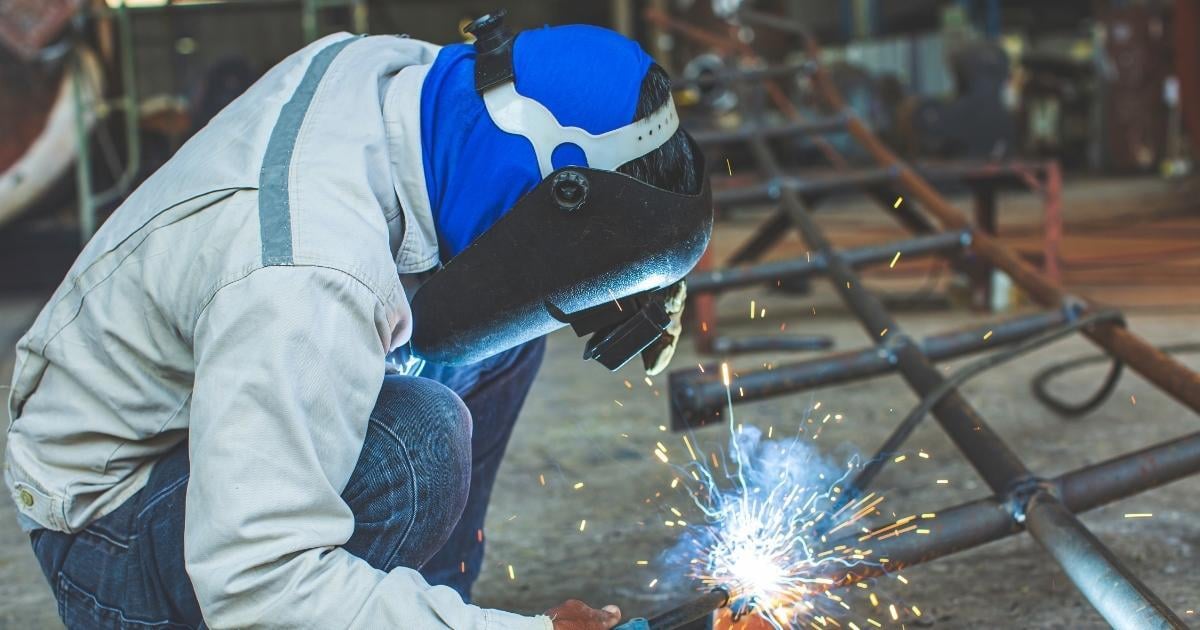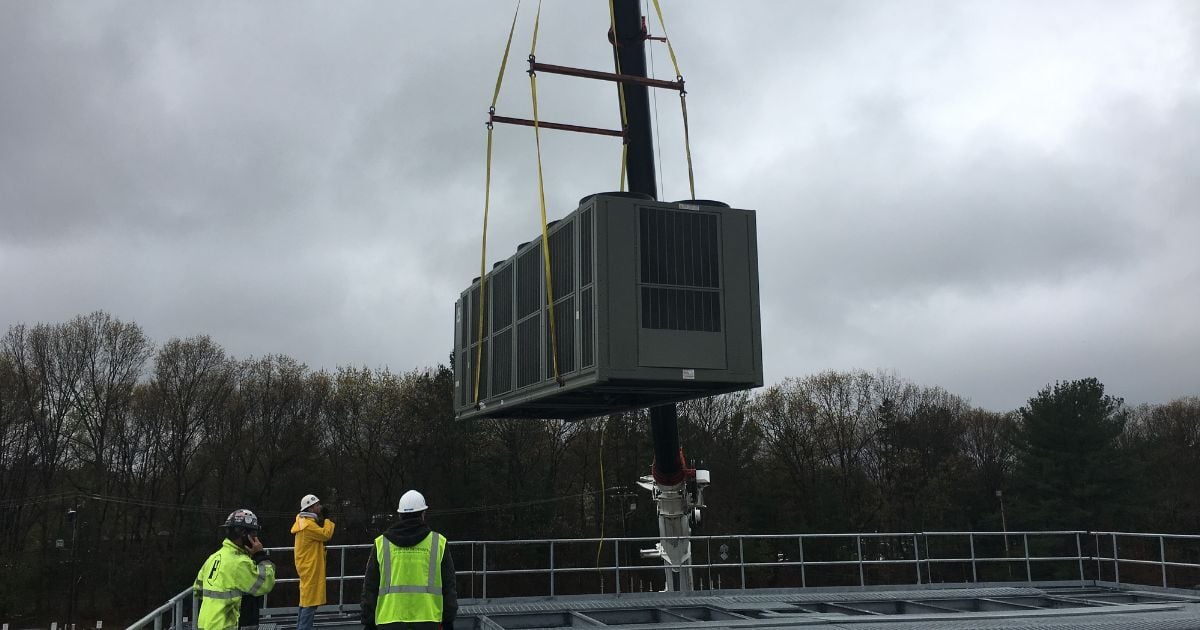Getting Hired in HVAC, Plumbing, and Trades Jobs Across New England
June 18th, 2025
4 min read

If you're struggling to break into the trades, sending applications, hearing nothing back, or not knowing what employers want, you're not alone. Many aspiring HVAC techs, plumbers, and mechanical workers face the same frustrating wall, especially when starting out.
At Harold Brothers, we've worked with hundreds of apprentices, journeymen, and foremen across New England. We’ve seen firsthand what separates the hired from the overlooked and, more importantly, how newcomers can set themselves up for long-term success.
In this article, you’ll learn what hiring managers are looking for in candidates, what you can do to stand out (on paper and in person), and how to build a career path that moves you from apprentice to foreman with confidence.
What Hiring Managers Are Really Looking For
Before you step onto a job site, your attitude, effort, and preparation already say a lot about you. Hiring managers in the trades aren’t just looking for people who can turn a wrench; they’re looking for dependable team members who take pride in their work, show up ready to learn, and care about doing the job right.
1. Reliability and a Strong Work Ethic
The trades are built on trust. If you show up on time, follow instructions, and take safety seriously, you’ve already made a strong impression.
2. Willingness to Learn and Take Direction
No one knows it all on day one. Managers are looking for people who ask questions, listen to feedback, and want to keep getting better.
3. A Positive, Team-Oriented Attitude
Most jobs require coordination with electricians, GCs, engineers, or other trades. Respect and communication go a long way.
4. A Commitment to Jobsite Safety
Companies like Harold Brothers prioritize safety every day, and even give out awards for safe behavior. Being mindful of your surroundings and following protocols is a must.
How to Make Your Application Stand Out
Even in the trades, how you present yourself on paper matters. A clear, simple resume can help you stand out from other applicants. Be sure to include your contact information, a summary or short goal statement, and any relevant work experience, even if it’s not in the trades.
Jobs like construction, landscaping, or home repairs show that you’re comfortable with tools and physical labor. Also, list any certifications you’ve earned, such as OSHA training, safety credentials, or trade school completions.
A cover letter doesn’t need to be long. Just a few thoughtful sentences that explain why you’re interested in the trades, what excites you about the company or field, and your willingness to learn and grow can make a strong impression.
Finally, if you haven’t heard back after about a week, it’s perfectly okay to follow up. A polite follow-up message shows initiative, something hiring managers always appreciate.
What to Bring to an Interview for a Skilled Trades Job
Showing up prepared for an interview helps you make a strong first impression. Along with a good attitude and clean work clothes, bring copies of any important documents that show your qualifications.
If you’re an apprentice or journeyman, bring a copy of your license. You should also bring your OSHA card and any additional certifications you’ve earned, like a Hot Work permit, Mobile Elevating Work Platform (MEWP) card, or confined space training. If you have a resume or letter of recommendation, bring a printed copy of those, too.
Having these documents in hand shows that you take the opportunity seriously and are ready to get to work. Many hiring managers will use this information to verify your credentials and fast-track your onboarding if you're the right fit.
Skills That Matter in HVAC and Plumbing Careers
Whether you’re on a construction crew or doing service work, these skills can make or break your success:
|
Soft Skills |
Technical Skills |
|
Communication |
Basic math and measurement |
|
Problem-solving |
Hand and power tool use |
|
Time management |
Blueprint reading |
|
Attention to detail |
Pipefitting, soldering, or brazing |
|
Physical stamina |
HVAC system troubleshooting |
Don’t worry, you don’t need to know all of these on day one. Most are learned during an apprenticeship or on the job. And the good news? HVAC technician jobs are expected to grow steadily over the next decade, offering long-term stability for those willing to put in the work.
Technicians who understand preventive maintenance strategies for commercial HVAC often stand out, especially when they can apply that knowledge on real job sites.
What’s Required for Each Role
Not every path in the trades looks the same, and that’s a good thing. Whether you’re just starting out or you’ve been working with tools for years, there’s a clear track to move forward. Understanding what’s expected at each stage from apprentice to journeyman to foreman can help you set goals, stay on track, and build a lasting career. Here’s what you’ll need to succeed in each role.
Apprentice Requirements and Tips
- Education: A high school diploma or GED is usually required
- Requirements: Must register with the state as an apprentice.
- Focus: Learn from journeymen, complete the required on-the-job and classroom hours
- Tip: Get your OSHA 10 card early; many employers require it
What’s Expected of a Journeyman on the Job Site
- Requirements: Must have attended a trade school and completed your apprenticeship hours working in your chosen field.
- License: Passed the journeyman license exam in your trade. Your license process will vary depending on your chosen field, whether it's refrigeration, HVAC, or plumbing.
- Duties: Perform work independently, mentor apprentices, interpret plans and specs
- Skills Needed: Greater autonomy, code knowledge, and job planning
What It Takes to Move Up to Foreman
- Experience: Usually promoted after years of journeyman-level work
- Role: Lead crews, coordinate schedules, manage safety and productivity on job sites
- Bonus Skills: Leadership, job site communication, documentation, and coordination with project managers
Ready to Build Your Career in the Trades?
Getting hired in the trades isn’t just about having the right tools — it’s about showing that you’re serious, dependable, and ready to learn. There’s room for every kind of worker, from hands-on learners to natural-born leaders.
Commercial contractors are looking for people who want to build a career, not just get a paycheck. Bring a strong work ethic and a willingness to grow, and you’ll go far.
If you're still figuring out where you fit or what path to take, we break it down in our guide to careers in commercial HVAC and plumbing. It covers real roles, growth opportunities, and how companies like Harold Brothers help you advance.
This article is part of our “Working and Hiring in the Trades” series, written by the team at Harold Brothers Mechanical Contractors, proudly building in New England with expert HVAC, plumbing, and mechanical solutions.
John Flaherty is the Senior Director of Business Development at Harold Brothers Mechanical, where he plays a key role in fostering client relationships and driving strategic growth. With nearly two decades of experience holding a real estate license, John brings a deep understanding of business development and market dynamics to his role. Before joining Harold Brothers, John dedicated 15 years to education administration at Boston College High School, where he helped shape institutional advancement efforts. A proud alumnus of BC High, he continues to serve on the school's Alumni Advisory Council, strengthening connections within the community. As a contributing author for Harold Brothers Mechanical, John leverages his diverse professional background to provide insightful articles on industry trends, business strategies, and company developments.
Topics:




